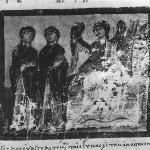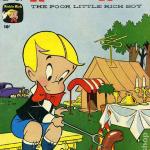GODSTUFF
“THE SEAFARER”:
PITCH BLACK HOLIDAY COMEDY PACKS A SPIRITUAL WALLOP
Set on Christmas Eve in a seaside village north of Dublin in a home populated by hard-drinking, down-on-their-luck Irishmen, Conor McPherson’s play “The Seafarer” is not what you’d call light holiday fare.
The play, at Chicago’s Steppenwolf Theatre, reflects on the flip side of what holiday cheer can bring.
Depression. Self-loathing. A sense of alienation, hopelessness, sorrow.
McPherson’s play, however, is brilliant. And the Steppenwolf production — featuring ensemble players John Mahoney (in a masterful performance as Richard); Tom Irwin (Lockhart); Alan Wilder (Ivan); the exceptional Francis Guinan (Sharky), and newcomer Randall Newsome (Nicky) — is a shining star in the firmament of perennially dazzling Chicago theater.
A dark — pitch black, really — comedy, “The Seafarer” packs a spiritual wallop that just might provide an unlikely (if ultimately joyful) antidote for sufferers of Christmas malaise.
It is an emotionally eloquent, wonderfully human explication of the experience of divine grace, which is what the Advent season is supposed to be about — God reaching God’s hands into the world, in the cry of a newborn baby, sent to redeem the world through grace. Unwarranted, unmatched, un-earnable grace.
The men all are problem drinkers. They’re either bachelors or in troubled relationships. Each has that loser vibe, with the possible exception of Lockhart — the odd man out in his tailored clothing, expensive trilby and refined brogue. The men have sought out one another’s company (and the comfort of jars of stout and cheap whiskey) in order to keep the heavy despair bay, if only barely.
Richard is blind (the result of taking a tumble into a garbage bin). Sharky is unemployed, heartbroken and just two days sober. Ivan and Ricky are hungover and in Dutch with their wives. And Lockhart, for all his finery, also is searching desperately for something eternally out of his reach.
“A Charlie Brown Christmas,” this is not.
In a particularly brutal scene, Lockhart tells Sharky what Hell is like.
“There truly is no one to love you. Not even him,” Lockhart says, pointing to the sky to indicate the Almighty. “He let you go. Even he’s sick of you.”
That’s what Hell on Earth feels like. No one loves you. You don’t matter. God has thrown up God’s hands and stormed out of the room, leaving you to your own sorry devices. There is no hope. There is no joy. There is no one coming to the rescue. You’ve messed up your life, and there’s no way to right it. Ever.
And all the twinkling Christmas lights, spiked eggnog and twee carols only serve to make the darkness in your heart feel that much darker.
Thankfully, McPherson doesn’t abandon Sharky — or the audience — in that slough of despair.
Salvation comes at dawn Christmas morning, coinciding with the arrival of the baby Jesus. Whether it’s divine or human intervention is left open to debate.
Still, God is clearly the God of second chances, of do-overs and the cosmic mulligan.
Richard, with the gravelly voice of a surly prophet, points out the moment of grace, which arrives, as it normally does, without bells and harp music.
“Ah, buck up will you, Sharky!” Richard says. “I don’t want the whole, ‘Aw, life is too hard, and I can’t take it!’ off of you today now, right? Do you hear me? We all know you’re an alcoholic, and your life is in tatters, and you’re an awful fucking gobshite. We all know that. But you know what? You’re alive, aren’t you? Aren’t you?”
Yes. And sometimes, just breath in lungs and the beat of a heart (even when it feels about the size of a raisin), is grace enough to give thanks and keep going. You may be a loser, a disaster, but you’re still here and, believe it or not, somebody loves you.
A few years back, I had the chance to interview Mahoney about his faith for a book I was writing, The God Factor, a collection of spiritual profiles of famous people. Mahoney’s interview was my favorite of the 32 in the book, and something he said over lunch in Oak Park that summer day in 2005 has stuck with me. In fact, I think about it every day. And I want to leave you with it — an Advent meditation, if you will, for those of us who sometimes feel we’ve lost our way, especially this time of the year.
“If I had children, what I would mostly want them to understand is exactly the opposite of what I was taught when I was a kid,” Mahoney said. “I’d want them to know that they will always be forgiven, that they will always be loved, that they will always get a second chance, a third chance, a fourth chance and a fifth chance and however many chances it takes. I would want them to know that, unless they are really, really vicious and mean and totally horrible, that they are going to heaven. They don’t have to worry about a thing. God will always love them and forgive them.
“Yes, you make mistakes. And, yes, you do things that you shouldn’t do, but you will be forgiven, and you will be loved, and you won’t be loved any less. You will be loved just as much as you were before you made those mistakes.”
(“The Seafarer” runs through Feb. 8 at the Steppenwolf Theater, 1650 N. Halsted. Ticket information online at www.steppenwolf.org or call (312) 335-1650.)















